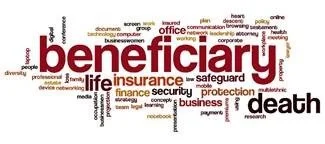Beneficiary Designation - A Critical Part of Estate Planning
Beneficiary Designation – A Critical Part of Estate Planning
When people think of estate planning, they usually think of Wills, Trusts, Deeds, Powers of Attorney, and Medical Directives. However, there are tons of other considerations when coming to the table with a family and addressing their unique familial and financial landscapes as they pertain to estate planning. Many of our clients don’t expect us to talk about beneficiary designation as often as we do. Electing beneficiaries and backup beneficiaries on every account that will allow it can avoid unnecessary time waste, stress, and can protect assets when the account owner passes away. Here are some examples:
Bank Accounts: Bank accounts always have owners. The accounts can be singularly owned, jointly owned, or owned by companies. With bank accounts, it’s always possible to include some beneficiary designation thought in the planning process. For example, joint account holders inherit assets in a bank account in the event that the other joint account holder passes away. For example, if a husband and a wife own a bank account with $10,000 in it, and the husband passes away, the wife becomes the sole owner upon the death of the husband. She can go to the bank and has full access and control over the funds. This example is also true if the husband owns the account with his son or daughter. If the husband passes away, his child and other joint account holder can just go to the bank to take out a check for all the funds in the account, avoiding the probate process and simplifying the transfer of assets process in a substantial way. It’s also possible to add “pay on death” beneficiaries to bank accounts at most major banks. These designations will allow the beneficiary to take out the money upon the death of the original owner.
Stock/Retirement Accounts: Financial accounts also can have beneficiary designation opportunity. IRAs, brokerage accounts, and other types of these accounts should always have beneficiaries, so they don’t get stuck in court. If a beneficiary (and even secondary backup beneficiary) is listed on an account, again the beneficiary can exercise full use and control over the asset upon the death of the original owner. If the beneficiary is not identified, the asset can get tied up in probate court, which adds stress and work to a beneficiary’s plate after their loved one passes away.
Transfer on Death Deeds: Even real estate can have beneficiaries! In Virginia, real estate can be re-deeded to include a Transfer on Death designation in the land records. This does exactly the same thing as above – the beneficiary is listed on the deed, so upon the death of the owner of the property, the beneficiary automatically takes title to the property, avoiding probate and unnecessary struggle.
If you have questions about beneficiary planning, give us a call! We include this type of planning with all of our estate planning clients. We’d love to help you get started. 703-771-9740

